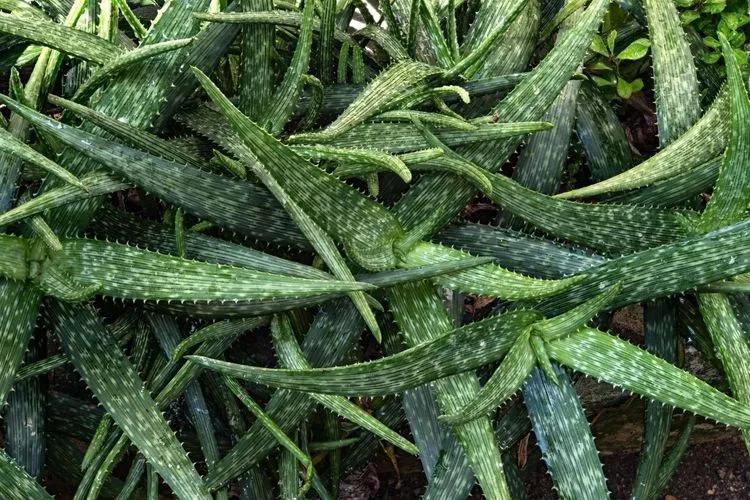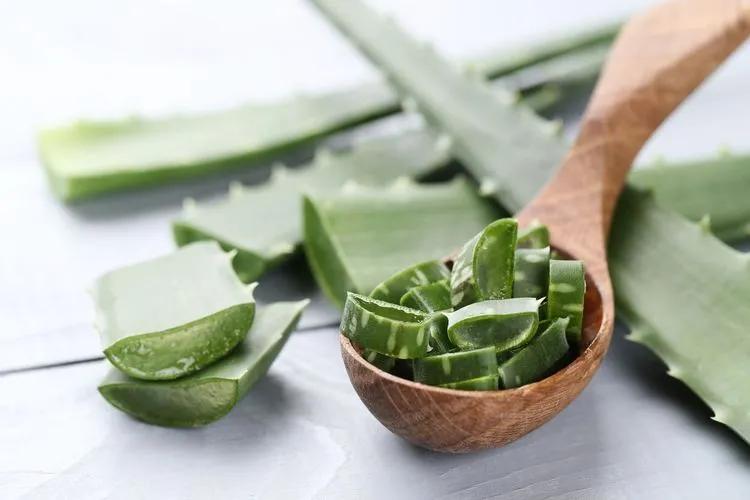Ancient Egyptians discovered the healing properties of aloe, the first mention of which dates back to 2 thousand years BC. The plant has not lost its popularity throughout centuries - it is still used widely as a medicinal plant and a pet. Stay tuned to learn all the interesting facts about this unique species.

Plant Overview
Aloe vera is a succulent herb and a species of the genus Aloe of the Asphodelovoe family. Humanity uses aloe vera in medicine and cosmetics. The leaves, which can grow up to 50 centimeters in length, are rosette-like. They have a smooth surface and jagged edges. Because its homeland is the island of Barbados, aloe feels good in a hot and dry climate, and frequent watering is not required. In addition to the substantial beneficial properties of Aloe, it is also easy to care for.
The Benefits of Aloe Vera for the Human Body
People use this medicinal plant due to its healing properties. Scientists are constantly studying its properties, proposing new methods of use. Aloe vera juice preparations are not uncommon in a drug store or beauty store. So what are its main strengths?
Valuable properties of Aloe:
- purifies the air in the room, like any houseplant;
- bactericidal effect;
- used as an anesthetic drug;
- used for inflammatory processes, including in the oral cavity;
- anti-allergic action;
- improves digestion;
- cell regeneration;
- laxative and diuretic effect;
- wound healing effect;
- strengthens the immune system;
- moisturizing and rejuvenating the skin;
- prevention of cardiovascular diseases;
- rich in vitamins, iron, and mineral salts;
- slows down the aging process.

Benefits of Aloe Vera in Traditional Medicine
Traditional medicine uses it to treat a variety of diseases. It is an effective remedy for the treatment of stomatitis in children and adults. You can not do without it with viral flu or sore throat. Applying aloe to abscesses and decaying wounds, literally after a few procedures, you can see an improvement.
It is an excellent remedy for burns if there is no particular remedy at hand. It also reduces itching and redness of the skin with allergies. Juice of this plant is also used for gastrointestinal problems—for example, ulcer treatment. You can also add it to medicinal syrups, and it promotes better absorption of iron. Are you taking antibiotics? Then Aloe will help you out because it minimizes their harmful effects.
Benefits of Aloe in Cosmetology
Due to the high content of vitamins, mineral acids, and other beneficial substances, aloe vera has a beneficial effect on the skin. It saturates it with moisture, smoothes it, and makes it elastic. Therefore, you can often find Aloe in anti-aging creams. It is also well suited for cleaning the skin. The flesh of the plant is widely used in masks, scrubs, and peels. The succulent is also effective in the fight against dandruff. Regular masks and rinses with aloe vera extract leave hair soft and silky.
How to Use Aloe at Home
For medicinal and cosmetic purposes, the lower leaves of a plant older than three years are suitable. Very young leaves do not have many healing properties. The leaves are carefully torn off from the bottom and used within three hours. If you need gruel, carefully remove the top peel with a sharp knife, and pound the flesh to the state of gruel in a glass dish. If you need juice, then gently squeeze it out with your hands. Aloe vera juice and tinctures can be stored in the refrigerator in a dark container for up to two weeks without losing their healing properties.

The Drawbacks of Aloe Vera
Ancient healers called Aloe "the plant of immortality." But, it also has several contraindications.
Aloe is not recommended to use in the following cases:
- During pregnancy;
- When you have an intolerance to one of the components of Aloe;
- Acute diarrhea or acute gastrointestinal diseases;
- Children under three years old;
- Hemorrhoids;
- Liver problems;
- In case of vague abdominal pain, it is better not to use it until you get an accurate diagnosis; • Chronic heart failure.
The reason for such precaution is simple: taking aloe inside can result in heartburn, diarrhea, abdominal cramps, dyspepsia, a feeling of a rush of blood to the pelvic organs, increased menstrual bleeding, increased uterine tone during pregnancy, and allergic reactions.
Experts can observe severe side effects in rare cases: blood in the urine and an abnormal heart rhythm.
Final Thoughts
It is also worth noting that all contraindications relate mainly to internal use. In this case, it is best to consult your doctor. There are practically no contraindications for external use, so we recommend adding aloe to your skincare routine. But, it is essential to remember that balance is the key: it is better not to use the plant in unlimited quantities.
FAQ
Is Aloe Vera Safe to Consume Orally?
Aloe vera can be taken orally, but with caution. Only the clear inner gel is considered safe in small amounts. The yellow sap just under the skin acts as a strong laxative and can cause cramps or diarrhea. If you have health conditions or take medication, consult a doctor first.
